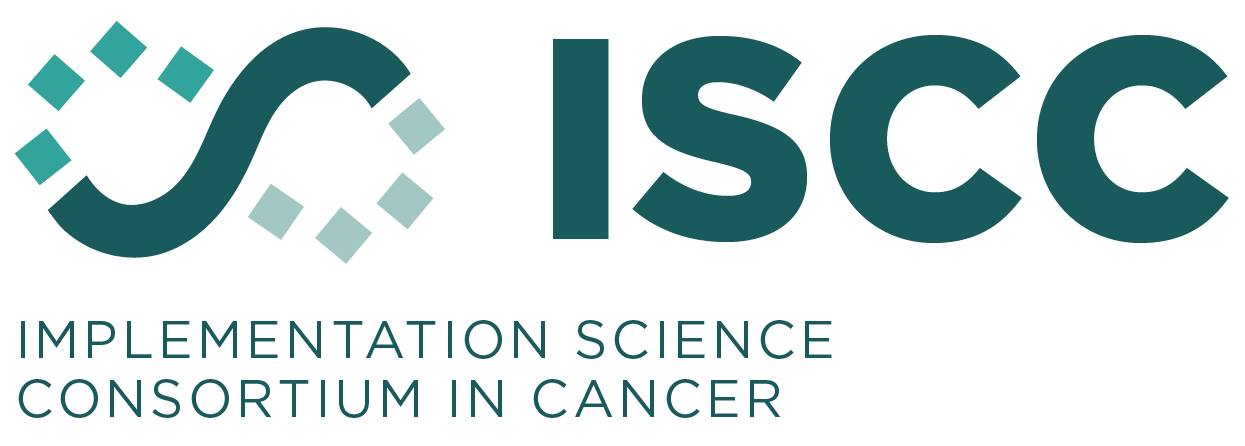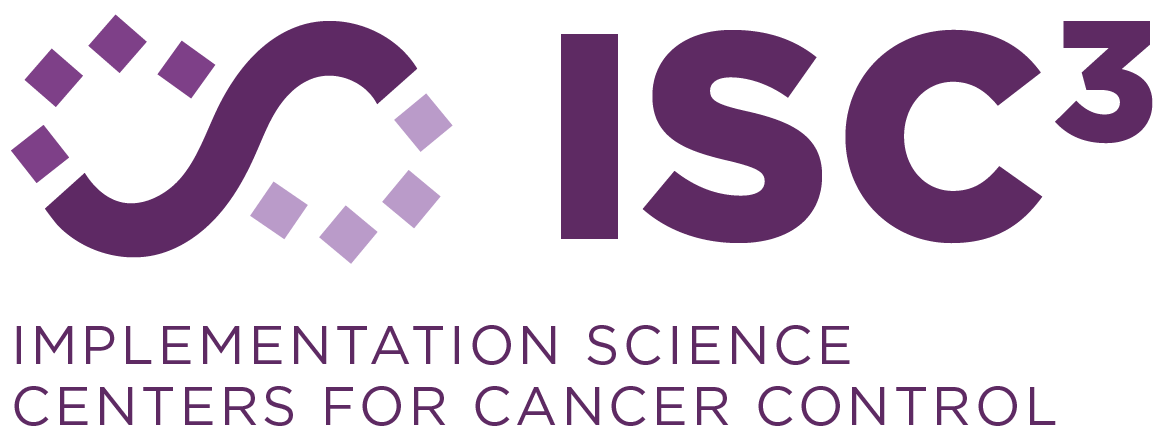In the fall of last year, the Implementation Science team was busy developing RFAs to fund a Centers Initiative in Cancer Control. This centers initiative is the National Cancer Institute’s first large centers initiative focused specifically on implementation science in cancer control. It took a lot of work to get the RFA off the ground: there were countless presentations for approvals, figuring out the nuances of contractual language, multiple rounds of edits, and then navigating the process of actually releasing the RFA to accept proposals. Our vision was that these multidisciplinary and collaborative research centers would form a network to advance the science of implementation to improve cancer control. The centers would create implementation laboratories in clinical and community settings, develop shared methods to improve study design and metrics for implementation research, perform innovative pilot projects to determine the best strategies for implementing evidence-based cancer care, provide data resources from implementation studies, and share findings with the cancer research community.
At that time, we couldn’t have imagined the incredible response we would receive from investigators. Today, with funding from the Cancer MoonshotSM, NCI has been able to support six grants to establish Implementation Science Centers in Cancer Control (ISC3 – https://cancercontrol.cancer.gov/IS/initiatives/ISC3). In response to the funding announcement, these centers proposed ideas to address challenges in moving implementation science forward in cancer control and will now conduct research to address these challenges in collaboration with key partners and stakeholders, forming “implementation science laboratories” capable of participating in a range of important studies seeking to improve the uptake of evidence-based interventions to improve cancer control. These laboratories include health systems, community clinics, public health departments, and other community-based health care settings across the country.
Given the unequal burden of cancer across diverse populations and documented disparities in cancer outcomes, it is noteworthy that the funded centers all proposed to reduce health disparities and address inequalities in cancer prevention and control in urban, rural, low-resource, or racial/ethnic minority communities. Examples of the work these centers are doing to address disparities include the following:
- Pragmatic implementation science approaches to enhance the value of cancer prevention and control in rural primary care settings through the assessment of costs, benefits, and value from the perspective of different stakeholders to understand and guide implementation. (University of Colorado, Denver)
- Addressing the inequitable implementation and limited scale of evidence-based interventions (EBIs) by developing and testing implementation strategies aimed at narrowing health inequities and by advancing methods that carefully consider the low-resource, complex nature of Community Health Centers (CHCs), where adaptation and cost-effective solutions are needed most. (Harvard T.H. Chan School of Public Health)
- Identifying and developing adaptable processes and technologies to improve cancer control, survivorship care for breast cancer patients, and communication among clinicians and between clinicians and patients in community-based oncology clinics in Appalachia and the northeast US. (Wake Forest University Health Sciences)
- Developing a rigorous scientific evidence base for rapid-cycle implementation research to increase the reach, external validity, and sustainability of effective cancer control interventions with a focus on disadvantaged and minority populations in rural and other underserved communities. (Washington University in St. Louis)
- Advancing implementation science to improve cancer screening and prevention in underserved populations by better understanding the unique barriers that limit implementation of EBIs in primary care community health centers. (Oregon Health & Science University)
- Improving cancer outcomes by supporting optimized implementation of EBIs in community and clinical settings for a wide range of cancers across the cancer care continuum. (University of Washington)
Over the next five years, we encourage you to keep an eye on the innovative work these centers are doing. We also invite you to engage in the Implementation Science Consortium in Cancer (ISCC), which is open to everyone and the centers are expected to host in the years to come. We envision the Consortium as an inclusive “big tent” where investigators, stakeholders, and practitioners can work collaboratively to address key challenges and identify and develop areas of research that require ongoing relationship and facilitation to advance the implementation science agenda in cancer control.
A huge “thank you” to everyone who expressed interest in this Centers Initiative and your continued interest in staying engaged in this work. The response from the research community to this call for proposals was greater than we had anticipated, and we continue to get questions from our partners in other government agencies, funders, and grantees about ways to be involved. These inquiries are a signal of growing interest, engagement, and demand for implementation science in cancer control.
On that note, we want to encourage you to take advantage of the many opportunities to be involved and to participate in developing the research agenda in implementation science for cancer control. We have listed a few options below, but we are also open to your ideas and feedback on additional ways to be involved:

- Join the Implementation Science Consortium in Cancer (ISCC).
Learn about the first consortium meeting, see what was discussed in the break-out groups, and find out how to join workgroups and/or attend future consortium meetings: https://cancercontrol.cancer.gov/IS/initiatives/iscc
Some of the activities proposed for the consortium include precision health and big data, economics and cost, rapid cycle design of implementation studies, implementation laboratories, policy and implementation science, context and equity in implementation science, and technology and implementation science. It is not too late to join these discussions or start new inquiries into the “public goods” that the field needs in order to advance implementation science.

- Learn about the work of the Implementation Science Centers in Cancer Control (ISC3).
Over the next five years of this initiative, the centers will be hosting trainings, conducting webinars, and disseminating tools. We will be sharing this information on our ISC3 website. Consider subscribing to the Implementation Science Newsletter to stay up-to-date.
- Start planning your next Implementation Science grant.
Do you have a new research idea that would contribute to the larger implementation science and cancer control agenda? Meet with an NCI Program Director to get feedback on your research aims for the Dissemination and Implementation Research in Health (PAR-19-274).
There are also other grant mechanisms that include an implementation and dissemination focus that may be a good option for you. To learn more about other Implementation Science Funding announcements at NIH, visit our Funding Opportunities webpage.

- Train.
Training in Dissemination and Implementation Research in Cancer (TIDIRC) is now available to everyone in open access format! We encourage you to take advantage of this unique resource.
- Learn about other Implementation Science-related Cancer Moonshot activities at NCI.
We are energized by the enthusiasm for the ISCC and ISC3 and hope you will join our Implementation Science community and participate in the exciting work to come.
ISC3 NCI Leadership Team:
April Oh
Program Director
Health Communication and Informatics Research Branch
Behavioral Research Program
Cynthia Vinson
Senior Advisor for Implementation Science
Kelly Blake
Program Director
Health Communication and Informatics Research Branch
Behavioral Research Program
David Chambers
Deputy Director for Implementation Science
April Oh, Ph.D., M.P.H., is a former Senior Advisor to the Implementation Science (IS) Team in the Office of the Director in the Division of Cancer Control and Population Sciences (DCCPS) at the National Cancer Institute (NCI).

Dispatches from the Implementation Science Team, is an episodic collection of short form updates, authored by members and friends of the IS team representing a sample of the work being done and topics that our staff are considering for future projects. Topics address some of the advances in implementation science, ongoing issues that affect the conduct of research studies, reflections on fellowships and meetings, as well as new directions for activity from our research and practice communities.


